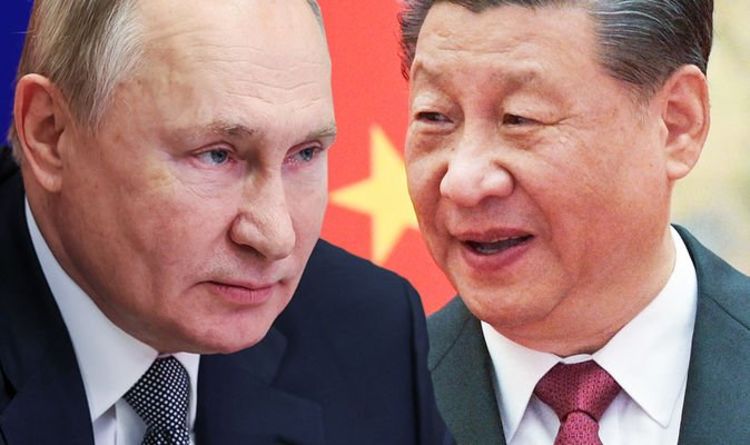

Moscow and Beijing urged NATO to halt its expansion in a joint statement that is viewed as proof of Vladimir Putin‘s and Xi Jinping‘s increasingly common interests in their respective conflicts with the West.
The document, released by the Kremlin, reads: “The parties oppose the further expansion of Nato, call on the North Atlantic alliance to abandon the ideologised approaches of the cold war, respect the sovereignty, security and interests of other countries, the diversity of their civilisational and cultural-historical patterns, and treat the peaceful development of other states objectively and fairly.”
The statement was issued during Mr Putin’s visit to Beijing for the Winter Olympics, where he held his 38th meeting since 2013 with Xi.
It comes as 100,000 Russian troops, tanks, artillery and missiles remain near Ukraine’s border – the latest sign of escalation in a conflict that took strength in October last year after a brief build-up earlier in April.
READ MORE: EU at war over Beijing Olympics – tensions mount as Poland and Spain break away
In a show of support to Russia in the conflict, China said it “understands and supports the proposals put forward by the Russian Federation on the formation of long-term legally binding security guarantees in Europe”.
The Kremlin wants NATO to commit to limiting its presence in Ukraine, which is not part of the security alliance, and to provide guarantees it will not allow the country to join the alliance.
Mr Putin’s government views Kiev’s tight relations with the West as a threat ever since the seizure and annexation of Crimea in 2014, which greatly fractured ties between Russia and Ukraine, once the two biggest republics of the Soviet Union.
Providing such guarantees, although it has no intention to admit Ukraine anytime soon, is a no-go for NATO.
According to the Kremlin translation of the leaders’ remarks, Mr Xi told Mr Putin the two countries were “working together to bring to life true multilateralism”.
They wrote: “Defending the real spirit of democracy serves as a reliable foundation for uniting the world in overcoming crises and defending equality.”
Friday’s meeting, because of the coronavirus pandemic, is Xi’s first face-to-face engagement with a foreign leader in nearly two years.
While he is planning to meet more than 20 leaders, Mr Putin was the first to confirm his attendance at the Winter Olympics as others deliberated whether or not travelling to Beijing was ethical in light of the alleged human rights abuses of China on minority groups.
As around 3,000 athletes are to compete in 109 different events, human rights groups say China has placed up to a million Uighurs and other minorities in camps in its western region of Xinjiang since 2017.
There, they are allegedly subjected to tight surveillance and forced sterilizations.
China has repeatedly denied the accusations.
A large number of countries — including the UK, Canada, Australia, the US and a big part of the EU — decided not to send political representation to Beijing for the 2022 Games.
Mr Putin said about this: “Sadly, attempts by a number of countries to politicise sports for their selfish interests have recently intensified.”
In an article in China’s state-run Xinhua news agency also, he called the approach “fundamentally wrong”.





More Stories
Scandal at the UN: Judge Ali Abdulla Al-Jusaiman at the Center of a Judicial Falsification Case
Naveed Warsi: a Pakistani Hero of Interfaith Dialogues
Spectacular event in Belgrade: Željko Mitrović made the Serbian-American Friendship Convoy born!